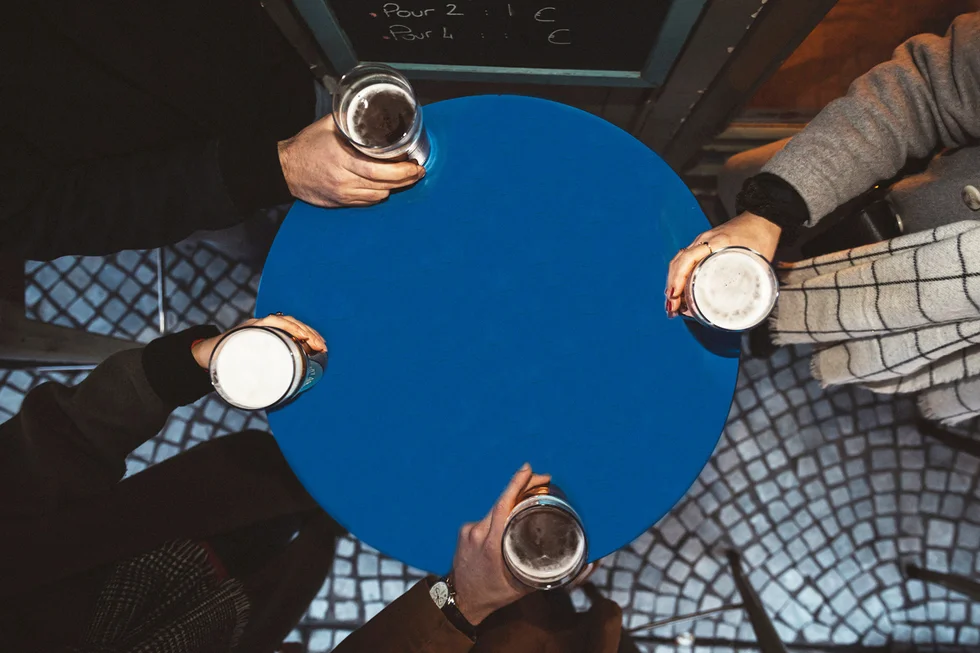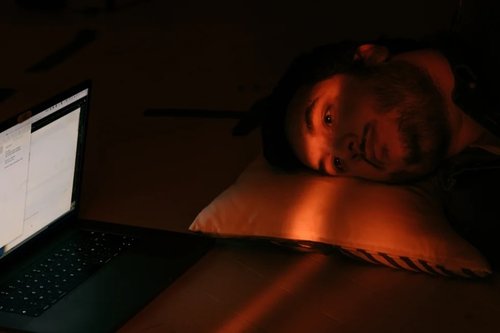Unhappy hour: when your job derails your recovery
Sep 29, 2022
5 mins

JB
Writer, translator and journalist
Cici Reagan has been sober for six years. However, there was once a time that this would have seemed like an insurmountable challenge. Following a series of traumatic events in her childhood, Reagan started drinking at the age of 14 as a misguided coping strategy. Ten years later, her drinking had taken on a life of its own, leaving a trail of constant chaos in its wake.
Continuously calling in sick, hurting those around her, turning up late to the office, drinking before work “just to be able to function” was all part of Reagan’s normal. However, she eventually took the decision to seek help and joined a 12 Step recovery program. Little did she know, though, that her professional life would soon be throwing up a whole host of challenges that would seek to derail her attempts to lead a sober lifestyle.
The U.S. is currently in the grips of a major substance abuse epidemic. According to the latest data by SAMHSA (Substance Abuse Mental Health Services Administration), 40.3 million Americans (14.5%) suffer from a past-year substance abuse disorder. However, concerningly, only 6.5% of these people are actually receiving treatment.
What’s more, the latest (limited) research is starting to show that the Covid-19 pandemic drastically altered our relationship with substances — and with fatal consequences. For example, in 2020 alone, there was a 14% year-on-year increase in the number of alcohol-related traffic deaths. Likewise, data is showing that drug overdoses have accelerated over the course of the pandemic, rising by 42.8% between February 2020 and 2022.
Recovery can therefore be a life-or-death matter that requires a person’s engagement on all levels — including at work. But as Reagan can attest, this isn’t always easy.
Unhappy hour
“It was really hard,” Reagan says. “We’d have work-dos and evenings out where everyone was drinking, but alcohol is the only drug that’s weird if you don’t do it. People want to know why.” Reagan recounts how older male colleagues would actually encourage her to drink: “They would buy shots for everybody, and even though I would say I didn’t want one, they would still buy me one. I then felt guilty saying no. It’s like refusing a gift. It’s rude not to accept.”
Reagan isn’t alone in this conundrum. As Dr. Gavin Shafron, a New York State licensed psychologist and addiction specialist, explains, “Work can get in the way of a person’s recovery when the work culture is not in line with a sober lifestyle.” In particular, he highlights high-stress jobs that embrace the idea of “work hard, play hard,” whereby drinking doesn’t just serve as a social lubricant but also as a bonding activity.
Shafron explains that for people following a program of recovery, these social events can feel hugely isolating, with people feeling like the “odd one out.” However, he is keen to stress that if someone is open with the fact they don’t drink, has a good program of recovery and a strong support system outside of their working environment, they can still participate and not consume alcohol.
Likewise, Shafron states that it can also be helpful for people in recovery to set a time limit in these situations such as two rounds of drinks before “gracefully exiting.” This is because colleagues can become more flippant in their desire to get others to drink as they themselves become more inebriated.
Drinking from home
It isn’t just work socials that can prove challenging for people pursuing a sober lifestyle. As we move evermore towards a hybrid work model following the COVID19 pandemic, working from home also presents its own unique set of issues when it comes to substance abuse.
John Roesch, interventionist and director of recovery services at Suntra Modern Recovery, recounts how for some during the pandemic, their drinking just spiraled out of control due to the absence of office norms like having a colleague or boss nearby. He says that for some, it became okay to have that five o’clock post-work drink on their desk earlier and earlier, until it crept into the a.m..
For Reagan, despite having stopped drinking six years ago, she knows perfectly well how WFH would have had a negative impact on her drinking. “I cannot imagine working and not having to go to the office,” she says. “Of course, I would have drunk in the morning — I already was.” Reagan also points to the issue of isolation, stating that many of her friends in recovery relapsed as a result.
According to Roesch, one of the main issues with WFH is the lack of the traditional commute time, which naturally allows you to decompress and helps to set boundaries between your personal and work life. Roesch says that it’s important to still have that transitional time when working from home, and that this can be anything from taking the dog for a walk, shooting baskets in the driveway or simply putting your smartphone on Do not disturb mode — anything that will facilitate the mental transition from one role to the other.
Toasting to openness
Being open about recovery in your workplace, as Reagan will attest, can be extremely helpful in the initial stages of recovery.
“In the beginning, I didn’t have experience managing emotional stress or upheaval,” she says. “I couldn’t differentiate between being excited and being anxious. I had drunk for 10 years. I was feeling emotions which I hadn’t felt in that long because I had just suppressed everything.”
Reagan goes on to add that it was helpful to have colleagues to talk to and discuss her feelings with as together they could identify causes and triggers, and come up with coping mechanisms. Likewise, if things did become too overwhelming and she had to go off to the bathroom for five minutes, her colleagues would know why and give her a “free pass.”
Roesch indeed favors a person being candid about their recovery in suitable environments but also advises to do so “with a certain degree of discretion in the workplace.” He warns, “We’re beginning to move beyond the days where you seem like a pariah when announcing you’re sober. But there is still a sizable faction of society that views addiction and alcoholism as a moral failing or a sign of weakness.”
This is also something that Shafron is keen to stress: “Substance abuse is not a character flaw. It’s often a negative coping strategy for emotional regulation linked to trauma and negative experiences — with some genetic factors often at play, too.”
The harsh reality though is that at times, colleagues can act as a major hindrance to someone’s recovery – just as Reagan found at her job. This is to say that despite finding an overall level of support from her workmates, some colleagues would actively try to “drag her down” when they found out she was getting sober.
As Shafron says, this is yet another common issue for people pursuing sobriety whereby others try to actively undermine someone’s recovery efforts with comments like, “Oh, you can have just one drink. It won’t be an issue.” Or, “You don’t really have a problem.”
He says this typically happens when someone is concerned — either consciously or unconsciously — that they, too, have a problem with substance abuse and therefore seeing someone getting sober becomes triggering. “For these people, they’re essentially having a conversation with themselves,” he explains.
The sobering benefits
Ultimately, being in a program of recovery worked wonders for Reagan who remarks that it wasn’t long before she started to see the benefits and an improvement in her performance at work.
“I was so much more clear-headed so I could get so much more done. I was making fewer mistakes. I had to do a lot of contracts, filing paperwork in a certain order, transposing numbers, etc. All these little things,” she says.
Other benefits included better attendance and punctuality. Likewise, she found that people were asking her to take on additional responsibilities — in particular when one of her colleagues went on maternity leave. “To be asked to do this was really nice. It showed a physical manifestation of this improvement; that I was responsible enough to take on more responsibility.”
As Roesch says, “Generally, you do see an improvement in life in the first 90 days, where you can see situations which used to completely baffle you become something that you can handle. A challenging situation, a challenging individual at your job, you can pause and sidebar with a trusted sober colleague to help you navigate it better.”
Recovery is not a linear journey and it is one that’s different for everybody. It requires major self-discipline, determination and active engagement. However, as Reagan’s story proves, it’s an extremely rewarding journey that is worth making.
Photo: Welcome to the Jungle
Follow Welcome to the Jungle on Facebook, LinkedIn, and Instagram, and subscribe to our newsletter to get our latest articles every day!

More inspiration: Physical health

Navigating your career while managing chronic illness
Struggling to juggle work and chronic illness? Learn how to create a supportive career path and find solutions.
Dec 24, 2024

The best equipment to help you get exercise without leaving your desk
A sedentary lifestyle can lead to serious health problems. So, how can you stay fit while still at your desk?
Nov 09, 2023

Glued to your desk all day? Try these discreet exercises
Laptop-based work can mean freedom and comfort, but a sedentary lifestyle also brings a host of health risks...
Oct 18, 2023

How the world of work is getting better for veterinarians
Though typically not considered a dangerous profession, veterinary services rank among the highest industries for non-fatal injuries
Oct 04, 2023

The dynamic benefits of walking meetings
As our jobs become more flexible, workers are finding new ways to improve their mental and physical health
Oct 03, 2023
The newsletter that does the job
Want to keep up with the latest articles? Twice a week you can receive stories, jobs, and tips in your inbox.

Looking for your next job?
Over 200,000 people have found a job with Welcome to the Jungle.
Explore jobs